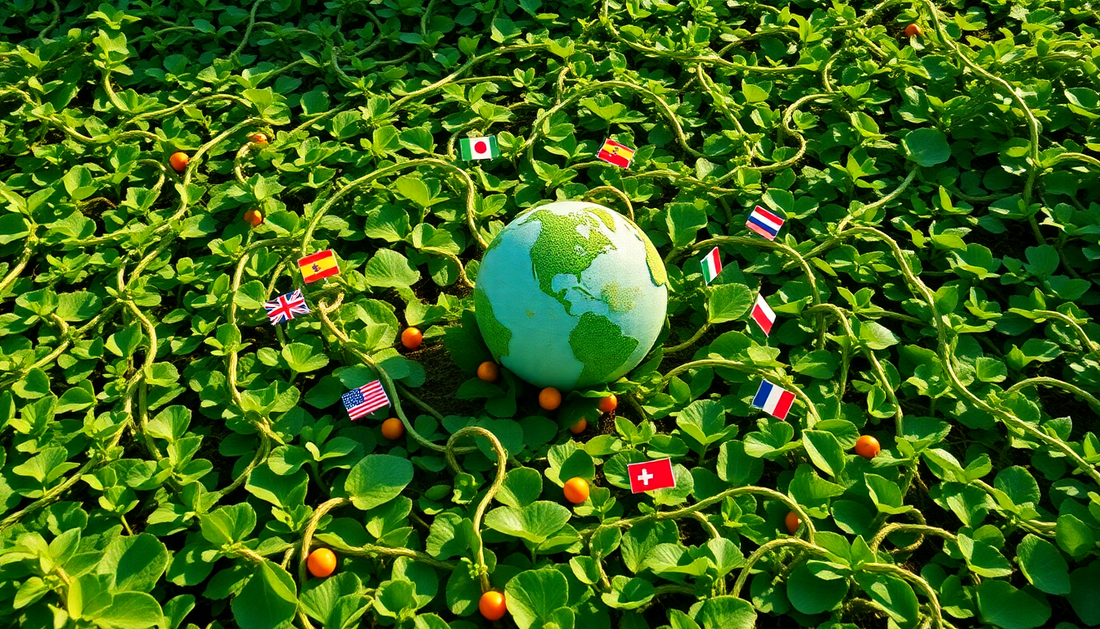In a world increasingly conscious of environmental sustainability and personal health, the demand for organic products has skyrocketed. From fresh produce to personal care items, consumers are seeking out alternatives that align with their values. However, the landscape of organic regulations can be complex, with varying standards and requirements across different regions. In this blog post, we'll delve into the nuances of organic rules in the United States, the European Union, and Asia, highlighting the key differences and their impact on the global organic market.
Organic Farming: A Global Perspective
Organic farming is a holistic approach to agriculture that emphasizes the use of natural methods and the avoidance of synthetic chemicals. This practice not only benefits the environment but also promotes the health and well-being of both producers and consumers. As the organic movement has gained momentum worldwide, governments and regulatory bodies have stepped in to establish guidelines and standards to ensure the integrity of organic claims.
Organic Rules in the United States
In the United States, the USDA (United States Department of Agriculture) oversees the National Organic Program (NOP), which sets the standards for organic certification. To be labeled as "USDA Organic," products must meet strict requirements, including the use of approved organic inputs, avoidance of prohibited substances, and adherence to specific production and handling practices. The certification process involves thorough inspections and documentation to verify compliance.
Organic Regulations in the European Union
The European Union has its own set of organic regulations, which are governed by the EU Organic Logo and the European Commission's organic standards. To be certified as organic in the EU, products must meet a comprehensive set of requirements, including the use of approved organic inputs, adherence to specific production methods, and compliance with strict labeling and traceability protocols. The certification process in the EU is similar to that of the United States, with third-party inspections and audits.
Organic Practices in Asia
Across Asia, the approach to organic farming and regulations varies widely. While some countries, such as Japan and South Korea, have well-established organic certification systems, others are still in the early stages of developing their organic frameworks. The challenges faced by Asian nations in implementing organic regulations include the diversity of agricultural practices, the need for infrastructure development, and the lack of harmonization across the region.
Comparison of Organic Standards
Despite the differences in organic regulations across regions, there are some common threads. All three regions – the US, the EU, and Asia – share a focus on the use of natural methods, the avoidance of synthetic chemicals, and the promotion of environmental sustainability. However, the specific requirements and certification processes can vary, which can impact the international trade of organic products.
Future Trends in Global Organic Regulations
As the demand for organic products continues to grow, there is a growing need for harmonization and collaboration among regulatory bodies worldwide. Efforts are underway to streamline the organic certification process and facilitate the movement of organic goods across borders. Additionally, emerging challenges, such as the impact of climate change on organic farming, will likely shape the future of global organic regulations.
Conclusion
Navigating the organic landscape can be a complex task, but understanding the nuances of regional regulations is crucial for both producers and consumers. By exploring the differences in organic rules across the United States, the European Union, and Asia, we can gain a deeper appreciation for the global organic movement and its impact on our collective well-being and the environment. As the organic industry continues to evolve, it will be essential to stay informed and advocate for harmonized standards that uphold the integrity of organic claims worldwide.

